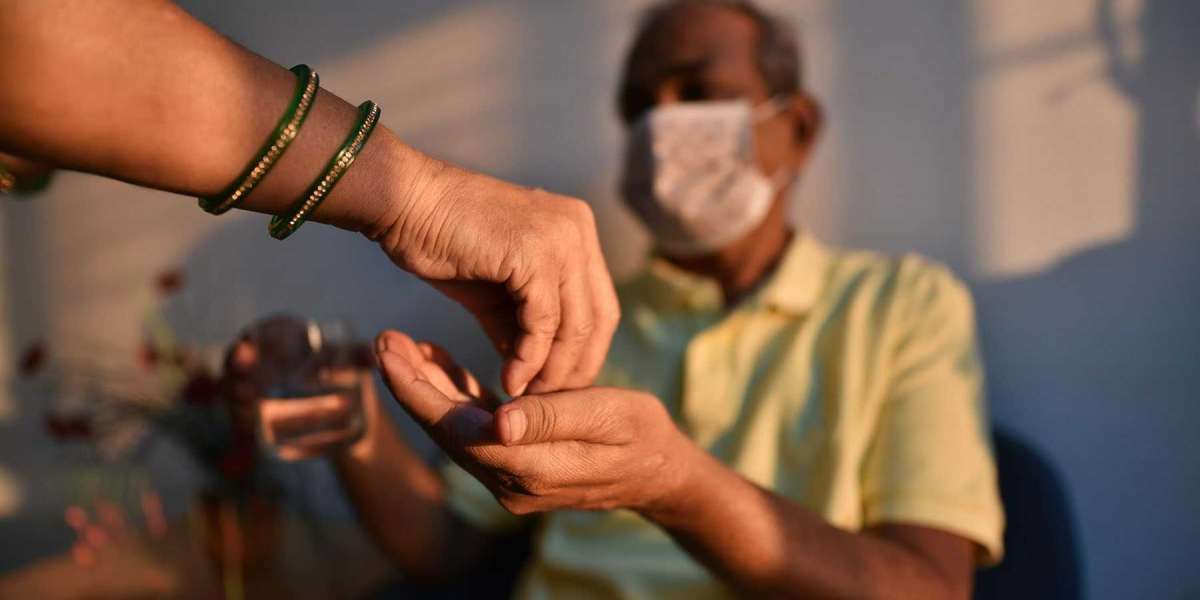Shaista Kazmi had no intention of pursuing a career in eldercare; instead, she had hoped to pursue a career as a doctor. However, when her father was diagnosed with a rare neurological disorder that was akin to Parkinson's disease in 2009, her plans were drastically altered.
As Kazmi described it, "there was a constant changing door of carers." "They demanded an absurdly large sum of money from us. We had a total of three children. "It was quite challenging for us in terms of finances."
However, on top of the financial difficulties she was experiencing, which ultimately led her to reduce her hours from full-time to part-time, Kazmi ran upon another roadblock. Kazmi's parents and in-laws were all born in Pakistan, as were Kazmi's grandparents. And, like many other immigrants and children of immigrants in America, Kazmi struggled to find care for her son that was culturally competent — care that took into consideration his language, diet, religion, and other sensibilities — and that was affordable.
When Kazmi's mother-in-law fell ill as well, the situation became much more difficult to deal with. Because Kazmi's mother-in-law could not speak English, staff from local home care organizations were entirely unable to converse with her — not because of any specific ailment or impairment, but rather because she did not speak English. Staff from local organizations were unable to prepare the cuisine that Kazmi's mother-in-law requested, and soup and sandwiches "aren't really going to fly with her," according to Kazmi. instead of doing laundry every day, Kazmi would make lentils and curries in advance for her mother-in-law.
"[Staff] could administer medication to her and ensure that she did not trip and fall, should the worst happen." "However, there was no camaraderie," Kazmi explained.
In Kazmi's case, she had come to a fork in the road after years of juggling competing duties. She might retake the Michigan medical board exam and re-enter the workforce as a doctor, or she may pursue an other profession. She made the decision to start from the ground up to provide the eldercare that seniors in her town required.
Apna Ghar Senior Care was established by Kazmi in 2014. The organization provides services to older immigrants from India, Pakistan, and Bangladesh who live in the Detroit metropolitan region, as well as an increasing number of aged immigrants from other nations. The organization is modest, with only between 40 and 60 personnel at any particular point in time. Several languages are spoken by the staff, and the agency is able to serve halal and vegetarian meals upon request.
Apna Ghar is one of a small number of organizations in the United States that cater to certain immigrant communities. The services are patchworked together and tend to pop up on their own. The vast majority of those contacted for this post were completely ignorant that other such programs are available in other states.
Pan Asian Senior Services is one of the most comprehensive organizations of its sort in the world. It has more than 600 home health aides working for it in Philadelphia, where it is located. It also has a day program and a community center for seniors who are more independent, which is "kind of like a YMCA model," according to Ken Yang, the organization's executive director.
In addition to offering English as a second language classes to both clients and staff, the facility also offers gym classes, computer classes, and even has saxophone band on the premises. Pan Asian Senior Services was originally established to serve the Korean community in Philadelphia, but it has since grown to offer programs in 19 different languages, including Mandarin, Cantonese, Vietnamese, Cambodian, and Haitian Creole.
At the height of the COVID-19 pandemic, Pan Asian Senior Services also offers a lunch program, which evolved into a meal delivery service for the elderly. According to Yang, "Meals on Wheels was not offering meals that were appealing to our elders' tastes or that they could readily digest." Everyone had underestimated the level of interest in the program. Local Black and White seniors who were intrigued and wanted to try something new ended up contacting them in large numbers.
"We were able to broaden the cultural horizons of a number of elders," Yang said of the project.
A variety of Korean dishes, including beef bulgogi and kimchi soup, are available at the community center and in-house lunch program once again. In celebration of the holidays, Pan Asian Senior Services had its annual holiday party earlier this month, where they served dduk gook, a Korean rice cake soup that is commonly given during the holidays and New Year's Day.
According to Yang, "I'm a Korean American who was born in the United States, yet I grew up eating [the same soup]." As he went on to explain, "it's significant because it's believed to bring good fortune in the new year."
Lunar New Year, also known as Chuseok, is celebrated in late winter, and Pan Asian Senior Services offers holiday programming for these celebrations as well as for American holidays such as Memorial Day and Fourth of July celebrations.
Food may make a significant difference in the quality of life of senior citizens. Kazmi recalls a client with dementia who she had the pleasure of serving early in her profession. The woman had dropped a significant amount of weight and didn't appear to be in the mood to eat. When she began receiving services from Apna Ghar, her situation began to alter.
She had her tiffin box, which was similar to her lunch box, opened by one of our carers. As a result, the lady she was caring for became hungry when she smelled the Indian spices, Kazmi explained. After several attempts, the caregiver finally succeeded in feeding the client with her hand, and she cheerfully ate for the first time in a long time. It was natural for both the caregiver and the client to eat with their hands. "[Other agencies] might not consider that hygienic, but culturally speaking, it was exactly what the customer required," Kazmi explained.
Culturally competent services, on the other hand, tend to have a positive impact on the health of elders beyond improving their quality of life. However, according to data obtained by Pan Asian Senior Services in 2020, during the height of the epidemic, fewer than 10% of seniors getting home care through the agency were hospitalized for any condition, for any length of time, regardless of the reason for the hospitalization. In the field of eldercare, hospitalization rates are a regularly used quality measure. The United Health Foundation reported in 2017 that about 15% of seniors in the United States were admitted to hospitals that year, and this was long before the pandemic.
Kazmi has also seen that her customers are living healthier lives, at least based on anecdotal evidence. "Having someone to talk to is quite beneficial, even for one's cognitive health," she asserted. Even having care professionals that speak the same language as the patients can make a significant difference in their quality of life. "Isolation may be quite harmful to people," she explained.



